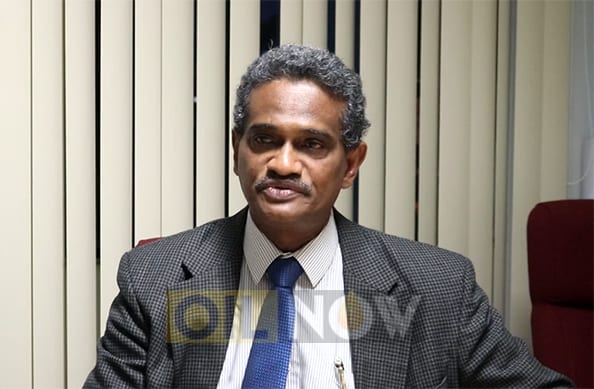…Anthony Paul on Petrotrin’s transition
Energy Strategist from Trinidad and Tobago Anthony Paul believes two issues need to be seriously looked at if the transition since the demise of Petrotrin is to be a success – the regulatory framework and succession planning.
It was announced in August 2018 that Petrotrin would be shutting down its refinery operations at Pointe-a-Pierre since it had become a drain on the treasury. It was announced too that the other aspects of the company’s operations such as exploration would be restructured.
Paul is no stranger to Guyana and the South American country’s oil and gas preparation efforts, having been hired to craft Guyana’s draft Local Content Policy. That document is currently the subject of review and the newly created Department of Energy is likely to take the lead on its finalization.
During an interview recently on Trinidad’s CNC 3’s The Morning Brew, Paul said that during the commentaries about the demise of the oil company he has not heard anything said in relation to fixing the oversight and the regulatory framework.
“The laws are in place, but they are not being addressed…the ministry is in place but it does not have the capacity…we need to fix those otherwise we will come back to the same place in a couple of years’ time,” he said. Paul said that while bringing in accountability is important, what he would like to see as well is a larger plan going forward. “In all of this Petrotrin role out it has been ‘drip drip’. The big picture hasn’t been painted. I am waiting for the big picture to evolve to see how we are going to go about exploration for instance…that’s not even on the cards,” he said.
According to Paul, shutting down of Petrotrin’s refinery operations is an acknowledgement that “we can’t do this.” “And that is fine, if that is the situation. What I am not hearing is what are we doing to get people ready for that next transition? How are we making sure that Trinidadian companies can be advisers to the Government rather than the [Wood] Mackenzies and others? How are you making sure that you can hire a CEO who is local?” he asked.
Paul pointed out too that while it is commendable that the initial plans for the company is to reduce cost while increasing production from existing and new wells, this is not sufficient for the viability of Petrotrin.
In the months leading up to the closure of Petrotrin’s refinery business, a number of politicians in Trinidad and Tobago sounded a warning that “something had to give” with the company as it was a drain on the treasury of the twin-island republic and that successive governments treated it in a ‘business as usual’ manner instead of taking hard decisions.



